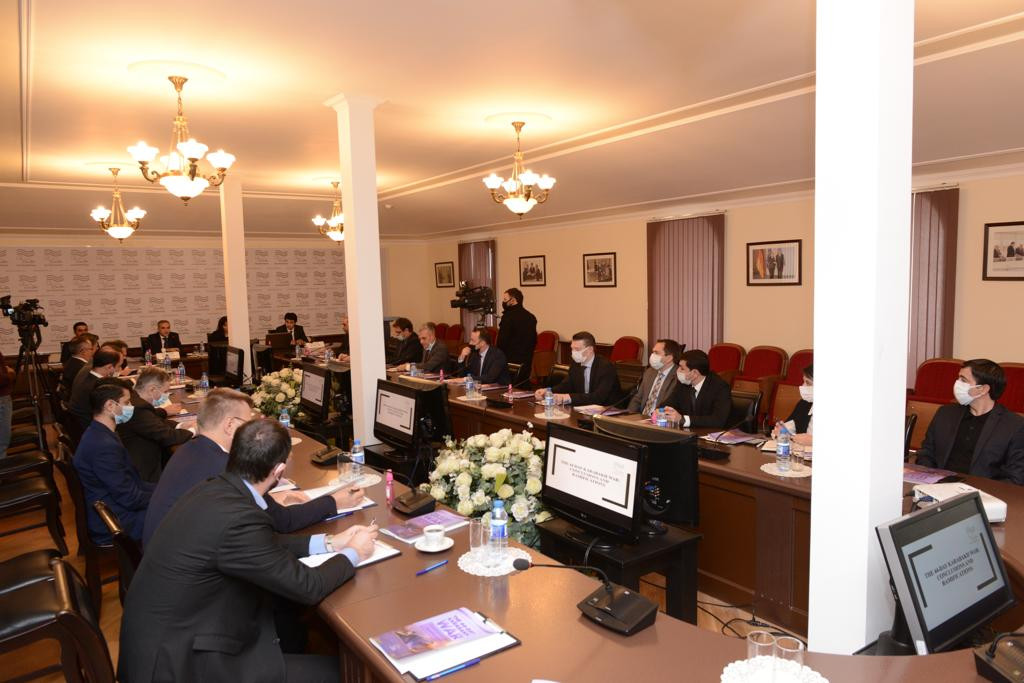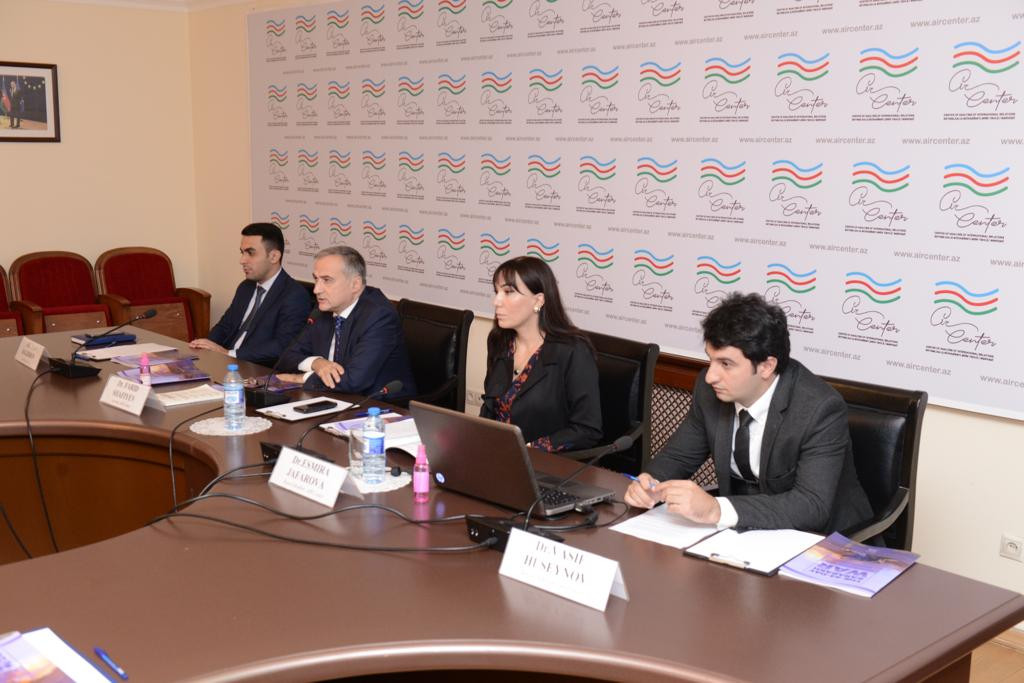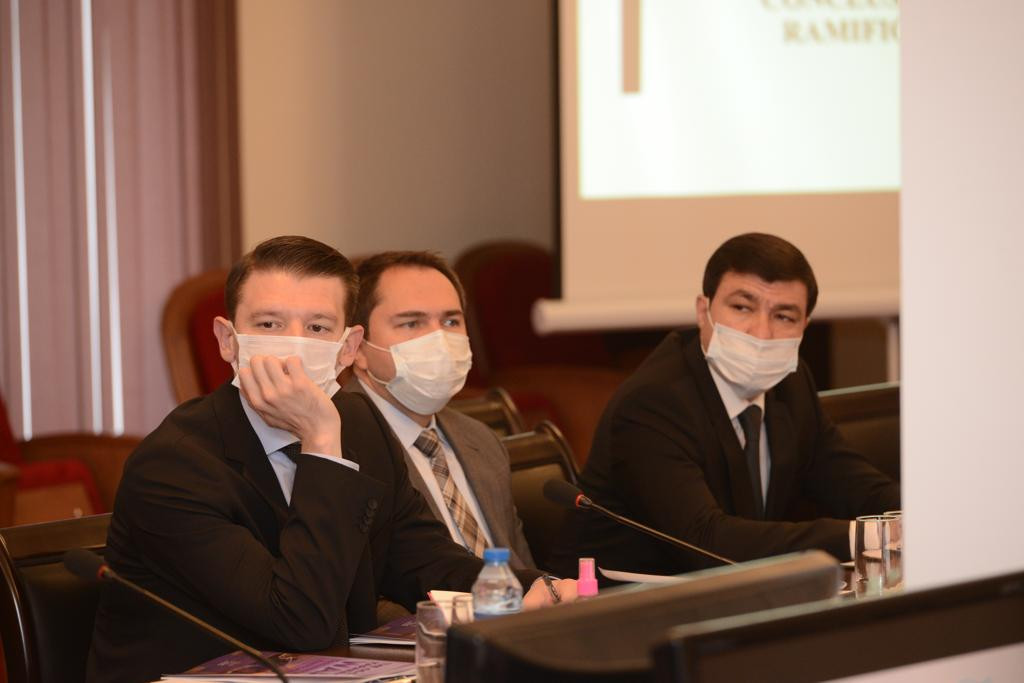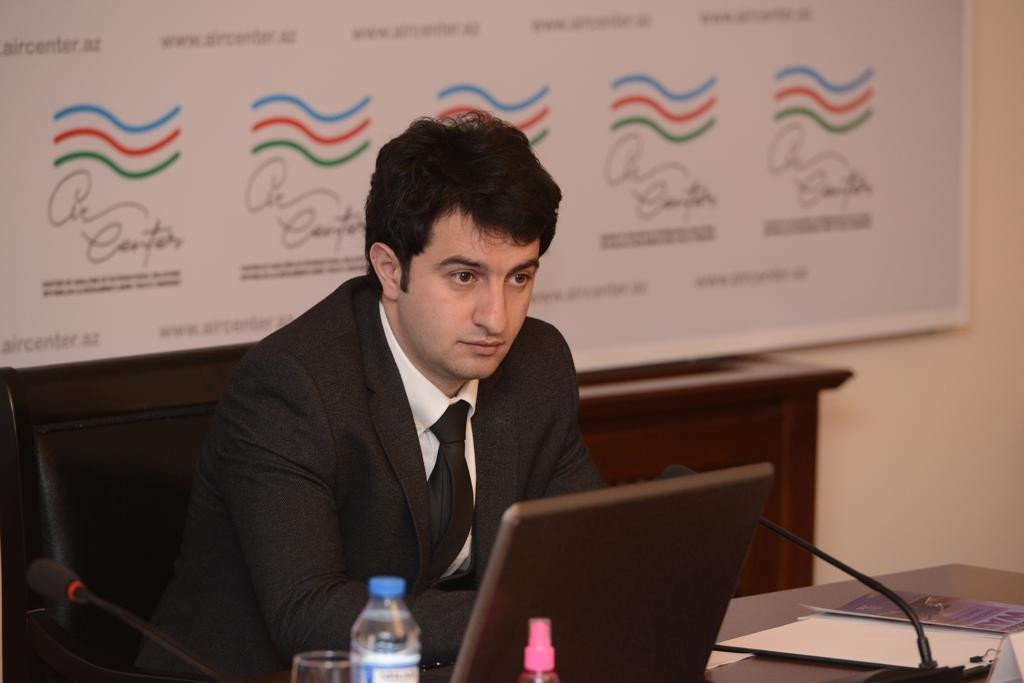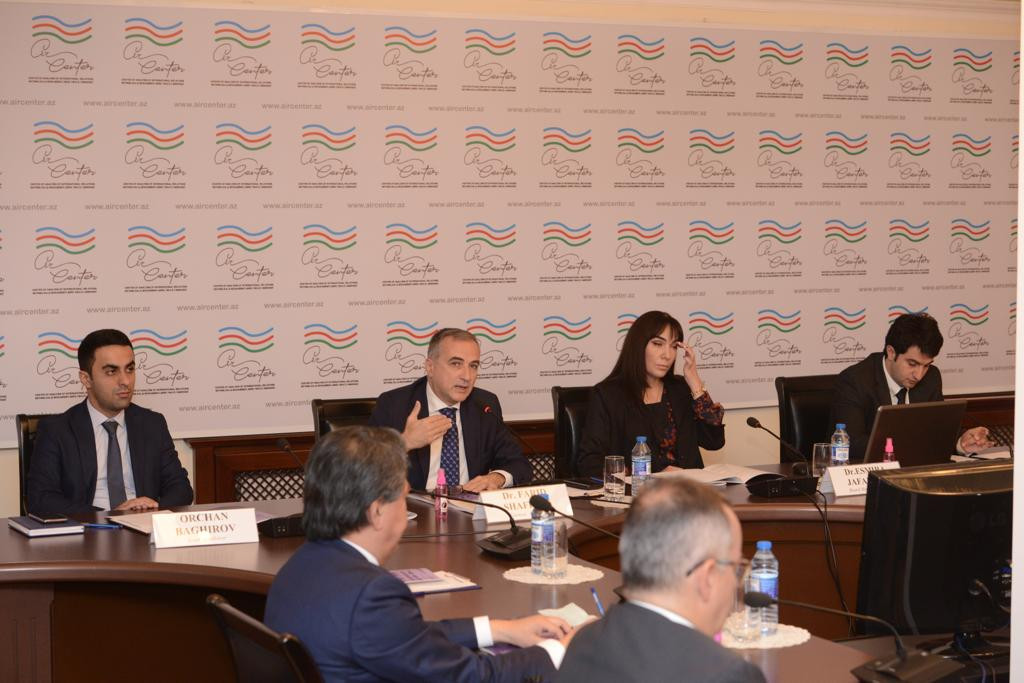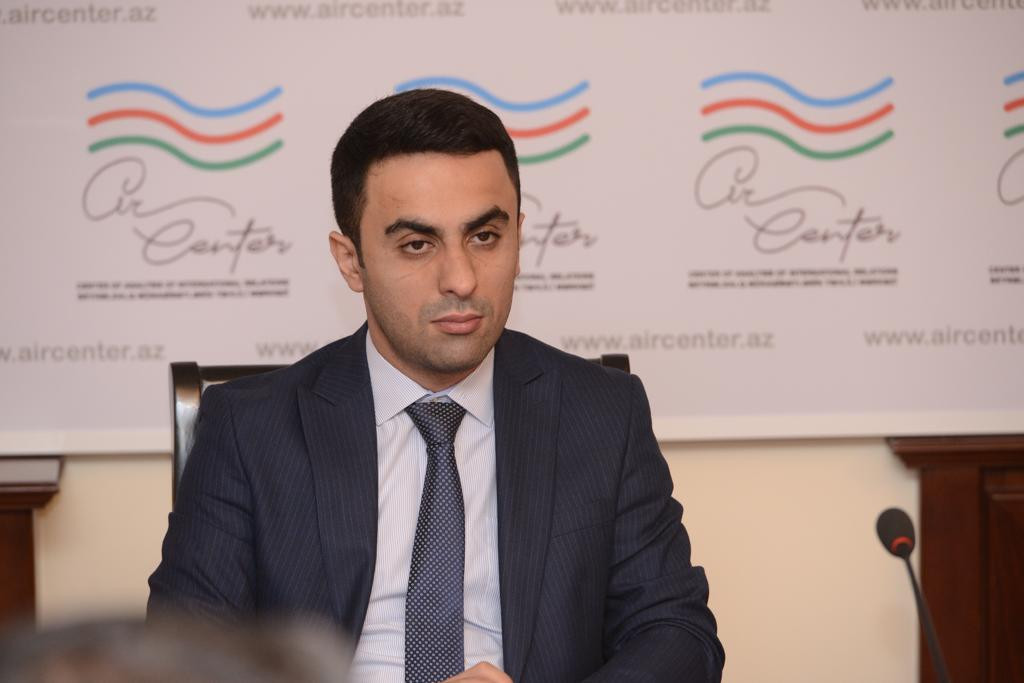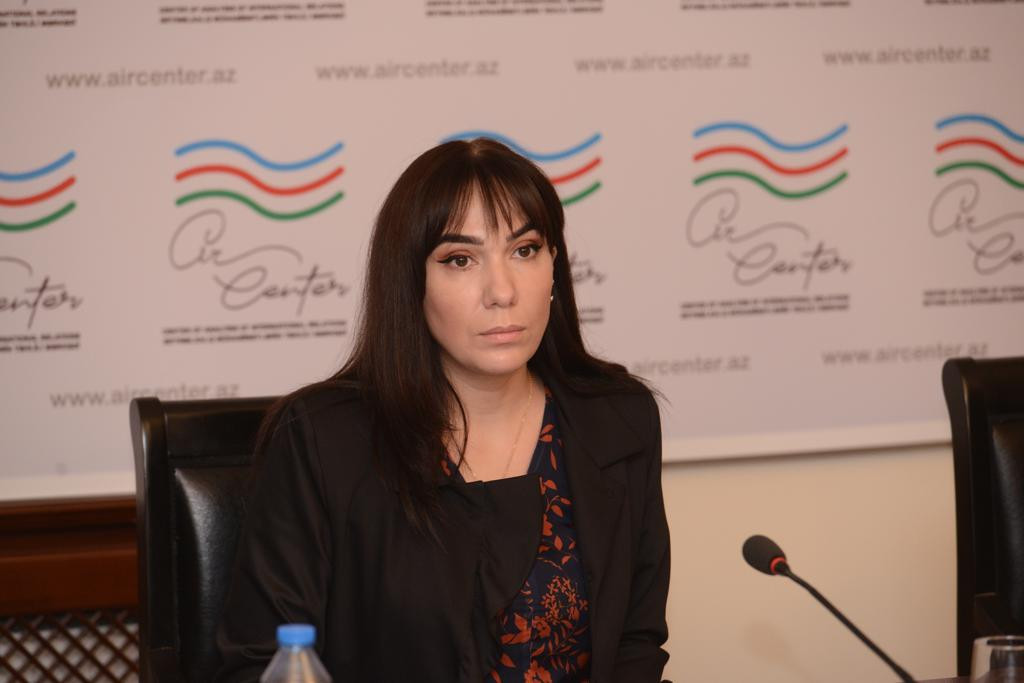The AIR Center has organized a presentation of its latest publication titled “The 44-Day Karabakh War: Conclusions and Ramifications” in English for the diplomatic corps, experts, and the media.
During his introductory speech the AIR Center Chairman Farid Shafiyev noted that the AIR Center regularly prepares analyses of the 44-day war and the post-war realities that are available on the Center's website. According to him, this publication is targeted at the foreign audience. He said that the report is not only about the war, but also about the prospects for the future transformation of the South Caucasus into an arena for economic cooperation and peace. Farid Shafiyev also highlighted that one year passed since the rocket attack by Armenian armed forces on Ganja City today and said that the incident took place at night to cause large civilian casualties.
Farid Shafiyev noted that one of the major issues underscored by the international experts after the war, was that the conflict could have been resolved peacefully. “Azerbaijan has repeatedly expressed willingness to resolve the conflict peacefully. However, 28 years since the inception of the Minsk Group and 11 years since the adoption of the Madrid Principles in 2009 were enough to witness that the situation was not moving ahead. Not only we were not moving ahead with the peaceful resolution, but in July of previous year in the north-western border of Azerbaijan, in Tovuz, there was an incident which was the result of deliberate provocation by Armenia. Today this fact is acknowledged by Armenian side as well and is reflected in media outlets and other sources. We have waited enough for the actions from the international community and finally decisively responded to the provocation initiated on the 27th of September by Armenia”, said the AIR Center Chairman.
Further the AIR Center Board Member Esmira Jafarova, senior advisor Vasif Huseynov and leading advisor Orkhan Baghirov delivered presentations on the report. The information about the 44-day war, its impact on Armenia–diaspora relations; the economic implications for the broader region; as well as its ramifications for international relations was brought to the attention of the audience.
The report analyzes conclusions and ramifications of the 44-day war from a different angle. This report touches upon three key effects of the 44-day war on international relations. Firstly, it laments that the failure of pre-war peace talks between Armenia and Azerbaijan and the unwillingness of the international community to put pressure on Armenia to comply with international law is yet another reaffirmation of a Machiavellian vision of international politics. In this regard, it also mentions that the impunity of Armenian leaders for their disregard of international law and lack of international response undermined not only to the peace process between the two South Caucasian republics, but also to the international legal order and trust in it.
According to the report, the second implication of the war was of a more military nature. The rapid transformation of almost all aspects of our lives over recent decades due to the technological revolutions proves not to have bypassed the military field. The 44-Day War, which was largely won by Azerbaijan thanks to its state-of-the-art weaponry, was a verification of this revolution. Although this revolution is seen by some states as a challenge, there is a group of states that view it as an opportunity.
The third implication of the latest Karabakh war mentioned in the report is its potential to empower smaller states more assertively to defend their national interests in confrontation with greater powers. Consequently, not only will this new situation improve the defensive capabilities of small states, but it will also increase the costs for big states to militarily confront them and increasingly encourage them toward negotiated solutions.
The report involves discussion and critical analysis of the impacts of the 44-day war on the region and beyond.

